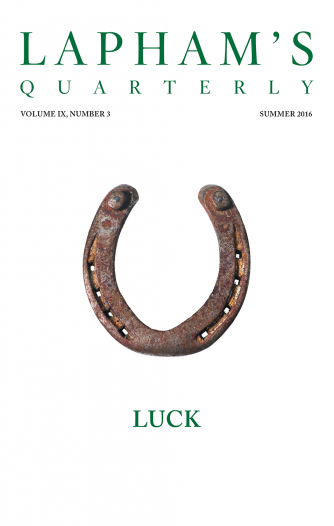It is indeed a consolation in old age to think that the work of life is over and done with. The happiest lot is not to have experienced the keenest delights or the greatest pleasures but to have brought life to a close without great pain, bodily or mental.
To measure a life’s happiness by its delights or pleasures is to apply a false standard. Pleasures are and remain something negative. That they produce happiness is a delusion, cherished by envy to its own punishment. Pain is felt to be something positive, and hence its absence is the true standard of happiness. And if, over and above freedom from pain, there is also an absence of boredom, the essential conditions of earthly happiness are attained. Everything else is chimerical.
It follows that a man should never try to purchase pleasure at the cost of pain, or even at the risk of incurring it. To do so is to pay what is positive and real for what is negative and illusory. There is a net profit in sacrificing pleasure for the sake of avoiding pain. In either case it is a matter of indifference whether pain follows pleasure or precedes it. While it is a complete inversion of the natural order to turn this scene of misery into a garden of pleasure, to aim at joy and pleasure rather than at the greatest possible freedom from pain—and yet how many do it!—there is some wisdom in taking a gloomy view, in looking at the world as a kind of hell, and in confining one’s efforts to securing a little room that will not be exposed to the fire. The fool rushes after the pleasures of life and finds himself their dupe; the wise man avoids its evils. Even if, notwithstanding his precautions, the wise man falls into misfortunes, that is the fault of fate, not of his own folly. As far as he is successful in his endeavors, he cannot be said to have lived a life of illusion; for the evils he shuns are real. Even if he goes too far out of his way to avoid evils, and makes an unnecessary sacrifice of pleasure, he is, in reality, not the worse for it. All pleasures are chimerical, and to mourn losing any is a frivolous and ridiculous proceeding.
The failure to recognize this truth—a failure promoted by optimistic ideas—is the source of much unhappiness. In moments free from pain, our restless wishes present, as though in a mirror, the image of a happiness that has no counterpart in reality. It seduces us to follow it; in doing so we bring ourselves pain, which is undeniably real. Afterward we come to look with regret on our lost state of painlessness. It is a paradise we have gambled away. It is no longer with us, and we long in vain to undo what has been done.
We might think that these visions of wishes fulfilled were the work of an evil spirit, conjured up to entice us away from that painless state that forms our highest happiness. A careless youth may think the world is meant to be enjoyed, as if it were the abode of real or positive happiness, and that those who fail to attain happiness are simply not clever enough to overcome difficulties that lie in the way. This false notion takes a stronger hold when he comes to read poetry and romance and is deceived by outward show. Such hypocrisy characterizes the world from beginning to end. The result is that his life is more or less the deliberate pursuit of positive happiness. He takes happiness to be equivalent to a series of definite pleasures. In seeking these pleasures he encounters danger—a fact we should not forget. He hunts for game that does not exist, and he ends by suffering very real and positive misfortune—pain, distress, sickness, loss, care, poverty, shame, and all the thousand ills of life. Too late he discovers the trick played upon him.
From “Aphorisms on the Wisdom of Life.” Born in Danzig in 1788, the pessimist philosopher moved to Frankfurt in the 1830s and remained there until his death in 1860. “A happy life is impossible,” he wrote. “The highest that man can attain to is a heroic one.” Much influenced by Hindu and Buddhist philosophies, the author concluded that the universe is not a rational place. “Schopenhauer’s gospel of resignation,” complained Bertrand Russell, author of The Conquest of Happiness, in 1946, “is not very consistent and not very sincere.”
Back to Issue

